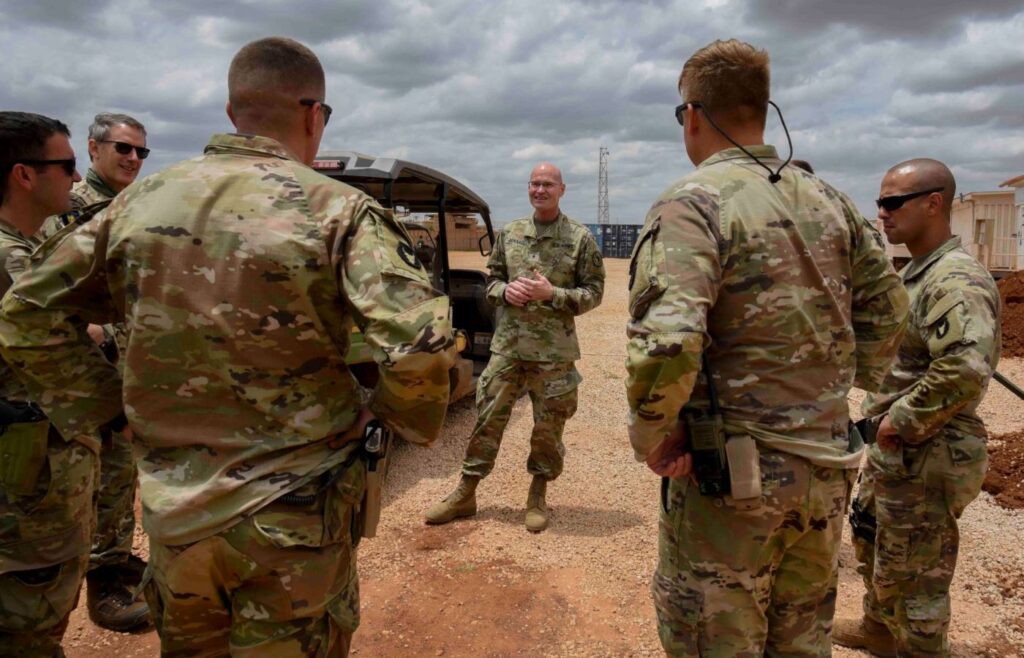
Last week, the US announced it was sending 450 troops back into Somalia, to target leaders of the radical Al Shabab organization, an affiliate of Al Qaida, and to help secure supply routes for humanitarian relief. This is the third time US troops have been inserted into Somalia.
At the end of his term, President George H.W. Bush ordered US Rangers to Mogadishu. Ten months later, nineteen US soldiers were killed fighting Al Shabab. Their bodies were mutilated and dragged through Mogadishu’s streets. Six months later, President Clinton withdrew the US military. The phrase, “No More Mogadishus,” became shorthand within the Clinton administration to warn against inserting poorly supported, low numbers of US troops into conflict areas in Africa. In April of 1994, that mindset figured in decisions of Secretary of State Warren Christopher and US Ambassador to the UN Madeleine Albright not to reinforce UN troops during the Rwandan genocide—a decision for which President Clinton later apologized.
In November of 2016, President Obama authorized US troops to return to Somalia, as part of the global war on terrorist organizations. He claimed authorization to do so under the 2001 Congressional vote responding to the September 11 attacks. Four years later, President Trump ordered those US troops home, believing they were not able to accomplish any stabilization in the Somali civil war that had been raging since 1991.
Now they are returning, for both humanitarian and anti-terrorism purposes. Two explanations are missing from this decision. The first is what authority President Biden can assert for violating the War Powers Resolution, which requires Congress to authorize the insertion of US armed forces into situations where “imminent involvement is hostilities is clearly indicated by the circumstances,” or to withdraw them within 60 days.
It is a stretch beyond credibility for President Biden to mimic President Obama’s approach by saying that this placement of US troops was actually authorized 21 years ago by Congress following the attacks on the Twin Towers and the Pentagon.
In sixty days, on July 15, President Biden will be in violation of the law if our troops are still in Somalia.
The second missing explanation is how 450 US troops can have any effect in a comprehensive plan of stabilizing the region. Somalia has been in almost constant war 45 of its 62 years of existence. After independence in 1960, Somalia soon fell under government by dictatorship. In the Cold War, Somalia was first a client state of the USSR, providing the Soviets with port facilities and intelligence posts. It then allied with the US, following Somalia’s 1977 invasion of Ethiopia to annex the Ogaden region, heavily populated with ethnic Somalis.
The Soviets switched their support to the communist dictatorship in Ethiopia. The US announced its support for Somalia. The war went badly for Somalia, and civil war ensued. Siad Barre, the Somali dictator, was deposed in 1991. Just at that time, the Cold War ended, and a proxy war between Ethiopia and Somalia no longer interested the US.
Related Articles
New privacy agency cannot expand unchecked in the dark
Eric Garcetti’s ambassadorship nomination should be axed
The mayor’s parents pull a few strings
Democrats’ midterm prospects are already bleak – but they could get worse
No more: Political Cartoons
A much deeper factor has long underscored the Somali situation: a commitment to reunite the ethnic Somalis spread out over former French, Italian, and English colonies comprising modern day Djibouti, Kenya, Somalia, and Ethiopia. The clan-based social structure of Somalis is another permanent feature, making consolidation into a single effective government difficult short of a dictatorship.
There is a role for humanitarian aid, and for military forces to protect those providing it.
The African Standby Force, created by the African Union after the Rwandan genocide, is a logical choice. The US has provided transportation and communication assistance to troops from African nations fulfilling this mission in the past. Inserting non-African troops into an African civil war might be justified to interdict a recurrence of a Rwandan-type of genocide; but the reinsertion of US troops into Somalia today is unlikely to produce a better outcome than our previous two incursions.
Tom Campbell is a professor of law and a professor of economics at Chapman University. He served five terms in the US Congress, where he was a member of the Africa Subcommittee of the House International Relations Committee. He and his wife have taught as volunteers in Africa on eight different occasions and have visited over twenty countries in sub-Saharan Africa, including Ethiopia and Somalia. He left the Republican Party in 2016 and is in the process of forming a new political party in California, the Common Sense Party.
